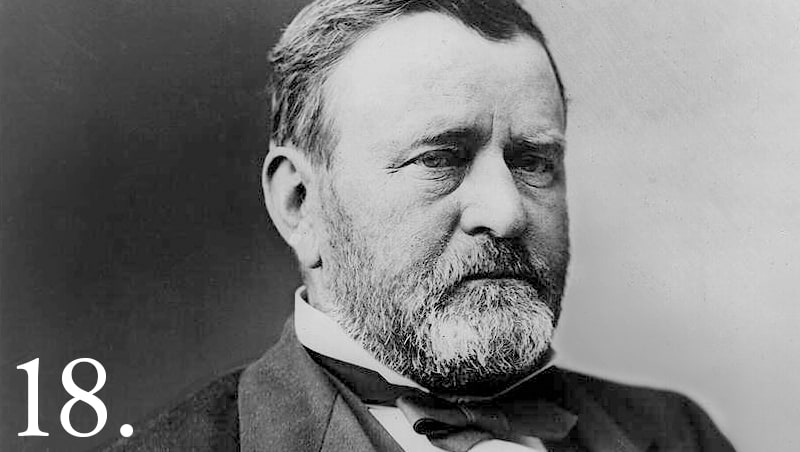
Asked by a Civil War opponent for Gen. Ulysses S.Grant to name his terms of surrender, Grant famously replies: “No terms except unconditional and immediate surrender can be accepted.”
160 Years Ago
February 16, 1862 – March 1, 1862
By Phil Kohn
Phil Kohn can be reached at USCW160@yahoo.com.
Brig. Gens. John Floyd and Gideon Pillow manage to escape Fort Donelson on the morning of February 16, 1862. Brig. Gen. Simon Bolivar Buckner, left in command, sends a note to Brig. Gen. Ulysses Grant seeking surrender terms. Grant famously replies: “No terms except unconditional and immediate surrender can be accepted.” Some 13,000 Confederate troops are captured, as well as 48 artillery pieces and much equipment. The federal victory is devastating for the Confederacy, which loses a third of its troops in Tennessee, as well as control of two strategic rivers, the loss of one of which — the Cumberland — leads to the evacuation of Nashville by Confederate forces.
To reward Brig. Gen. Grant’s victories in Tennessee, President Lincoln on February 17 promotes him to the rank of major general of volunteers.
The First Congress of the Confederate States meets in Richmond, Virginia, for the first time on February 18. Now a bi-cameral body, it succeeds the unicameral “secession convention” that had acted as a provisional Congress. Having set out from Rolla, in the central part of Missouri, Brig. Gen. Samuel Curtis’s 11,000 Union soldiers capture Bentonville, Arkansas, just south of the Missouri state line.
On February 20, Willie Lincoln, the 12-year-old son of President and Mrs. Lincoln, dies of typhoid fever at the White House in Washington, D.C. William and his younger brother Thomas (“Tad”), 9, had been ill for several weeks. Tad recovered. In Tennessee, Governor Isham Harris decrees that the state capital will move to Memphis, as the current capital — Nashville — is in the line of Union advances.
In the West, on Feb. 21, some 3,800 Union troops under Col. Edward Canby venture out of Ft. Craig to prevent Brig. Gen. Henry Sibley’s invasion force from crossing to the western side of the Rio Grande at a ford at Valverde, New Mexico Territory. The Federal troops are defeated by Sibley’s men, who capture six cannons. Most of the Federals manage to retreat to the safety of nearby Ft. Craig. Despite Sibley’s demand, Canby refuses to surrender. As the fort is felt to be too strong for the Confederates to attack, Sibley orders his brigade to keep moving northward toward Albuquerque and Santa Fe, leaving Ft. Craig and its complement of almost 4,000 Union soldiers in his rear.
Jefferson Davis’s presidential inauguration is held in Richmond, Virginia, on February 22. He had previously been the provisional president of the Confederate States. In Washington, D.C., President Lincoln — feeling pressure from the public — agrees to permit prisoner-of-war exchanges. Observers in the Northern capital note that the Army of the Potomac — ordered to action on or before this date by the president — has not moved. Independence, Missouri, is attacked by a band of pro-Confederate guerrillas led by William Quantrill.
Brig. Gen. Samuel Curtis’s Union force occupies Fayetteville, in northwestern Arkansas, on February 23, 1862.
Federal troops, without any bloodshed, take over Nashville, Tennessee, on February 24, forcing Confederate cavalry there, commanded by Lt. Col. Nathan Bedford Forrest, to withdraw. Nashville will remain in Union hands for the remainder of the war.
From Hampton Roads, Virginia, on February 25, transports carrying the first of Brig. Gen. Benjamin Butler’s 15,000 Union troops depart for New Orleans. The U.S. War Department takes control of all telegraph lines, to facilitate military movements.
In Virginia, President Davis on February 27 calls for martial law in Norfolk and Portsmouth, considering them to be cities “under threat.” The Federal iron-clad vessel USS Monitor departs from New York under sealed orders.
In the western part of Confederate Arizona, the company of Arizona Rangers sent out by Brig. Gen. Henry Sibley to guard his invasion’s left flank, arrives at and occupies Tucson on February 28.




